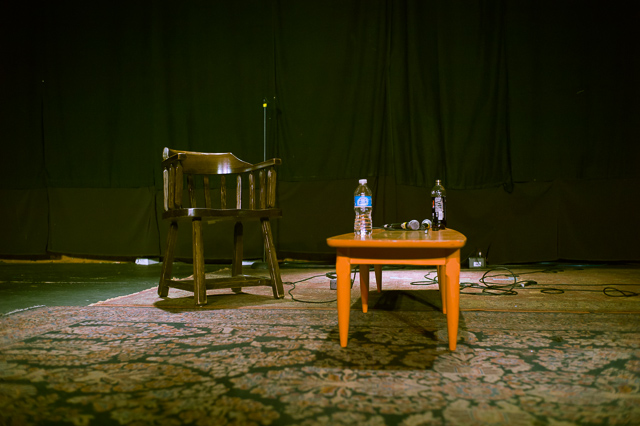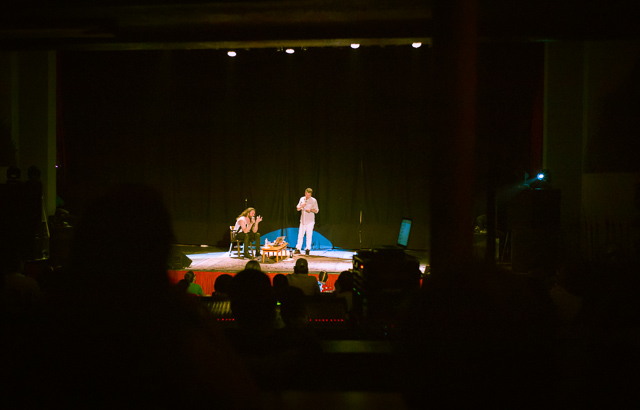I work for the federal government. Specifically, I work for the Institute for Telecommunication Sciences which is a research arm of the National Telecommunication and Information Administration, itself part of the Department of Commerce. My title is “Electronics Engineer,” and I do research to facilitate the efficient use of bandwidth in the context of telecommunication systems.1 The majority of the work I do is documented in trade conference proceedings (which require a vigorous review process, both internally and by trade professionals and academics), but is freely available for anybody to read.
One study I conducted found that if a 480x320 pixel video is sent to a device with a 960x640 pixel screen, it is unlikely that viewers will rate the quality of the video any differently than if a 960x640 pixel video is sent to the same screen. This knowledge would allow a hypothetical video service to conserve a large amount of bandwidth when sending video to devices with high-resolution screens—observed bit-rates for the video with fewer pixels were half that of the larger video.
So what does this have to do with a partial government shutdown?
This study, and others like it, fulfill the congressionally mandated mission for ITS and can inform technical and business-related tradeoffs for the benefit of occupants of the United States, whether corporate or individual. The study is the result of researchers interacting with other researchers in the same area of study, the perception of technical obstacles in the commercial sector and to a lesser extent, the result of voluntary commercial input. The study is the result of an exercise in autonomy. Researchers were given resources to conduct and document experiments as they saw fit. Fiscal and temporal budget constraints did not adversely impact or inform the development, implementation, or publication of this study.
In my opinion, organic, basic research like this is a necessity2 in an industry dominated by the business dogma of maximizing revenue by utilizing existing infrastructure and either minimizing expenditures on basic research or holding close to their chest or patenting the life out of the results of any internal research.3 I believe that if the economic inefficiencies of multiple corporations performing the same research can in any way be mitigated by a public third party, they should be.4
But for real, what does this have to do with a partial government shutdown?
The shutdown itself is a symptom of a much larger problem in the American society. Faith in ideals has taken the place of logic and [somehow] basic human compassion. Research and other academic pursuits are becoming decreasingly popular in a capitalist economy where the quest for revenue rules everything from health care to politics. Science itself is attacked when found to be inconvenient for corporations or shareholders, especially when concerning environmental issues, but also because proving any return on investment (never mind a worthwhile return) is an alchemic task at best.
It’s as if everyone has forgotten that the Internet, one of the biggest drivers of economic growth ever,5 is largely the result of the Defense Advanced Research Projects Agency, arguably one of the closest things to a unicornian6 research institution that ever existed. Research for the sake of research is inherently important to societal progression and, not overdramatically, the survival of the human race. In the political federal budget amphitheater, research for the sake of research is an increasingly unpopular use of precious revenue.
The New York Times wrote about a few research projects7 that are adversely affected by the government shutdown. What is most painful for me, possibly, is that aggressive political actors will have no problem making accusations that the science resulting from the affected research projects is invalid due to gaps in data collection that the political actors themselves caused. But the pain doesn’t end there. It is illegal (and in some cases a felony8) for a government worker to conduct federal business while on furlough. Seasonable temperatures that facilitate research in remote locations will come and go no matter how badly a certain faction in Congress wants to take the ball and go home. Trade conferences will take place without federal researchers, and months of taxpayer-funded research could result in nothing instead of a peer-reviewed publication freely available to anyone with an internet connection.
Politicians (not just elected officials) have a myopic view of the US and lack vision for the future. Proficiency in technical pursuits is the exception rather than the norm and this is increasingly unfortunate in our tech-dominated world. In some cases, agency leadership are so absorbed in self-motivated power grabs that what should be two way communications about strategy and operations have become an oft-ignored employee suggestion box. This communication gap is exacerbated by a lack of technical understanding.
These realities are beginning to prevent and preclude autonomous research. The shutdown has shone a light on these usually-hidden symptoms.
Of course, the contradictions and inefficiencies of a government shutdown are myriad, and the effects are felt by more than just career government employees and contractors. However, this image of apathy projected by politicians towards civil servants is apparent and not attractive to the few bright and young that could, if given the opportunity, breathe life into the extinct romance of serving one’s country in a civilian capacity. The state of the current civil service system is so unattractive to young, intelligent visionaries that the thought of working for the government is not even a passing fancy.
- In this post, I’m sure I’ve broken nearly every social media rule that applies to me as a federal employee, but as of now, I’m not employed by the government, so neener neener. Just in case, though, the opinions in this post (and indeed on this website) are not necessarily representative of the views or policies of my employer. [return]
- Though pragmatists rightfully believe science without undue external influence is a unicorn. [return]
- That’s a strong accusation, but I don’t see lots of US participants in trade conferences related to my field. [return]
- If you have a problem with corporations profiting from government-based information, let’s shut down the entire weather-based ecosystem of TV channels, websites, and phone apps. Many products in this category syphon information from the National Weather Service. [return]
- Even if it did take nearly 30 years to be opened for commercial use. [return]
- DARPA, at least in its early days, enjoyed plentiful funding and broad, flexible research directives. [return]
- Interestingly, many that study climate change, a topic often challenged by those mostly responsible for the government shutdown. [return]
- For example, it’s a felony for a government employee to check email while furloughed. [return]



